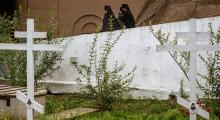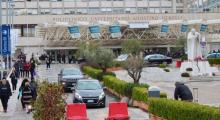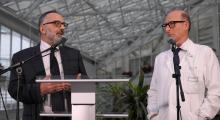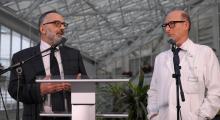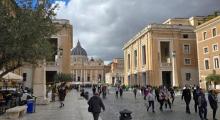Issued by the Catholic Center for Studies and Media - Jordan. Editor-in-chief Fr. Rif'at Bader - موقع أبونا abouna.org
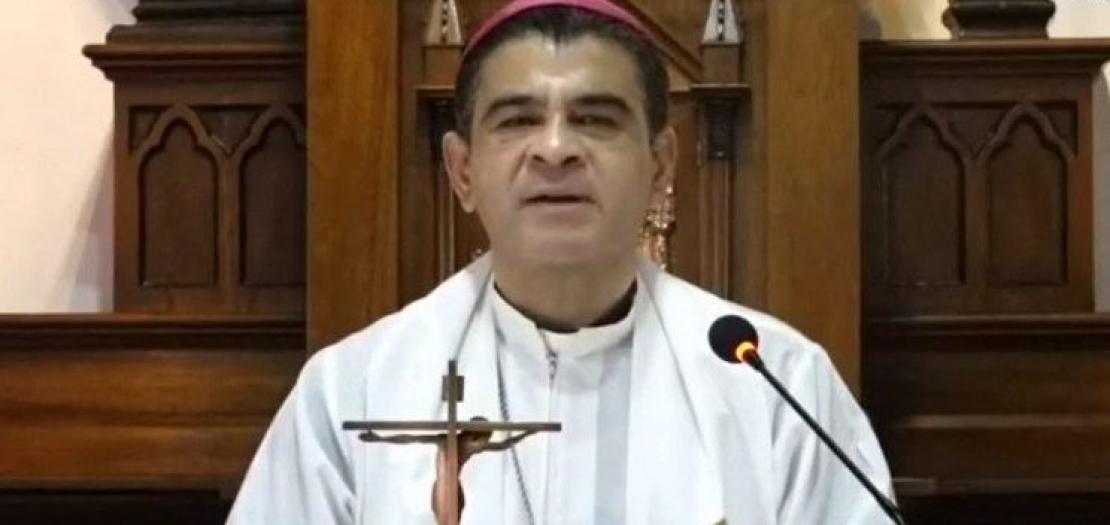
Nicaraguan Bishop Rolando Álvarez
Bishop Rolando Álvarez of Matagalpa, steadfast Nicaraguan church leader, gave his first interview since being exiled to the Vatican in January 2024, and it came amid another cancellation of the legal status of a Catholic organization as the Sandinista regime effectively extinguishes civil society groups and religious orders.
Asked how the faithful can endure in the face of such persecution, the bishop cited Pope Francis’ urging of the faithful “to turn to the Immaculate Conception,” the patroness of Nicaragua. Bishop Álvarez also advised young people “to be brave” like St. Joseph and emulate his “courage and trust in Providence.”
In Nicaragua, the January 8 edition of the La Gaceta – Diario Oficial, the government’s official journal, reported that the Interior Ministry revoked the legal status of the Foundation of Contemplative Dominican Nuns, citing a “voluntary dissolution” due to a “decrease in its members and a lack of resources to carry out its projects.” Fourteen additional organizations also had their legal status revoked, including evangelical churches, charitable groups and Save the Children International.
Nicaragua has canceled the legal status of more than 5,400 religious and nongovernmental groups over the past six years as the government of President Daniel Ortega and his wife, Vice President Rosario Murillo, closed spaces for civil society, persecuted the press and the opposition, and infringed on basic rights such as the freedom of association.
Infringing on Freedom of Worship
The couple, who have submitted a constitutional reform to make them co-presidents, have infringed on freedom of worship, too — with priests, bishops and religious either exiled and forced to flee the country. The regime has canceled the legal status of dozens of Catholic organizations, including religious orders such as the Jesuits and the Missionaries of Charity.
U.S. Sen. Marco Rubio of Florida, the nominee for secretary of state in the incoming administration of President-elect Donald Trump, raised church persecution in Nicaragua during his confirmation hearing January 15. “One of the first things they did in the new year is they kicked out every nun from the country. They’ve gone to war with the Catholic Church, which was the last institution in the country capable of standing up to them,” he said.
His comments on nuns reflected perceptions in Nicaragua that many women religious would be forced to leave Nicaragua after their congregations lost their legal status. A source familiar with the church’s situation in Nicaragua was unable to confirm the senator’s assertions that there are no religious sisters left in Nicaragua.
Martha Patricia Molina, a Nicaraguan lawyer in exile who documents repression against the Catholic Church in her home country, says at least 14 religious orders have left Nicaragua since 2018. At least 74 Catholic-sponsored organizations have been closed over the same period, including universities, Caritas chapters and charitable projects, she said.
December Report on Repression
In her latest report on church repression published in December, Molina said that overall 266 churchmen and churchwomen have been forced from Nicaragua or prohibited from returning after traveling abroad. They included 146 priests, 99 women religious and four bishops.
Bishop Álvarez, whose homilies denounced the excesses of the Ortega-Murillo government, is perhaps the most prominent voice sent into exile. He was exiled to Rome with 18 detained churchmen in January 2024 after being sentenced to 26 years in prison on trumped-up charges of conspiracy and spreading false information.
The bishop gave his first interview since being exiled to a Spanish publication, La Tribuna de Albacete. He told the publication Jan. 12 that he traveled to Spain on a pastoral visit, checking in on priests and seminarians from Nicaragua working and studying in the region.
“I always try to be close to my priests,” Bishop Álvarez said. “For me, this is the main pastoral task, even before any other preferential option. They are my sons, my brothers, my friends and my closest collaborators in the apostolic and evangelizing mission that the Lord has entrusted to me.”
When asked how the Nicaraguan church was doing, he cited a December letter from Pope Francis to Nicaraguans on the eve of the feast of the Immaculate Conception.
‘Loving Providence of the Lord’
The Pope told Nicaraguans, he said, “Do not forget the loving providence of the Lord, who accompanies us and is the only sure guide. Precisely in the most difficult moments, when it seems humanly impossible to understand what God wants from us, we are called not to doubt his care and mercy.”
Asked how to confront a difficult reality of persecution at home, Bishop Álvarez cited the papal letter, which counseled, “Be assured that faith and hope perform miracles. Let us look to the Immaculate Virgin; she is the luminous testimony of this trust.” He continued, “Hence, we always turn to the Immaculate Conception, who is the patroness of Nicaragua.”
Another question asked the bishop for his advice for young people. He told them to “look at the Holy Family: Jesus, Mary and Joseph. St. Joseph, as a just man, gives us an example of courage and trust in Providence.”
He added, “I encourage (young people) to be brave, creative and innovators” like St. Joseph. “That they be fearless and to maintain the energy needed to transform the world into a better place for everyone.”


